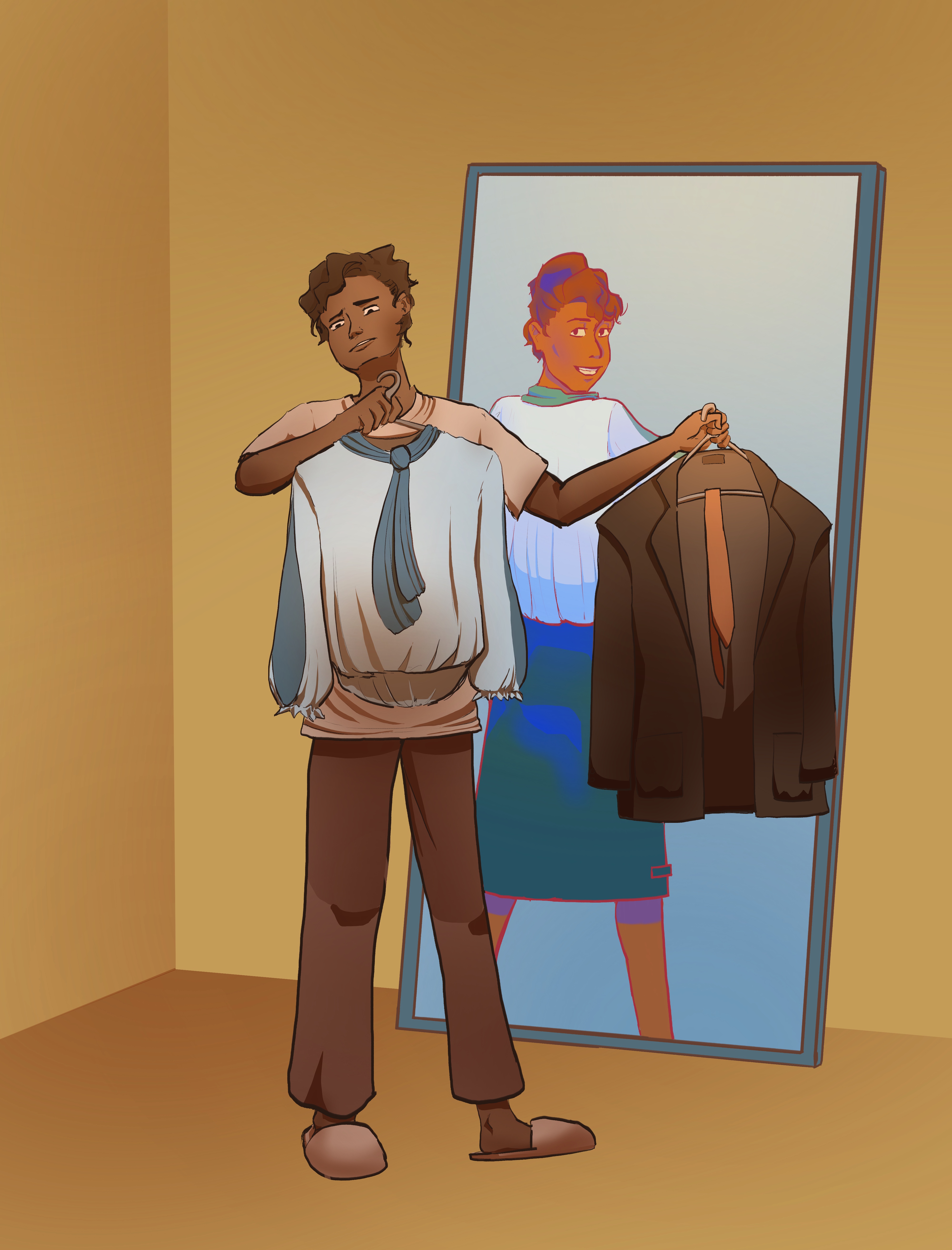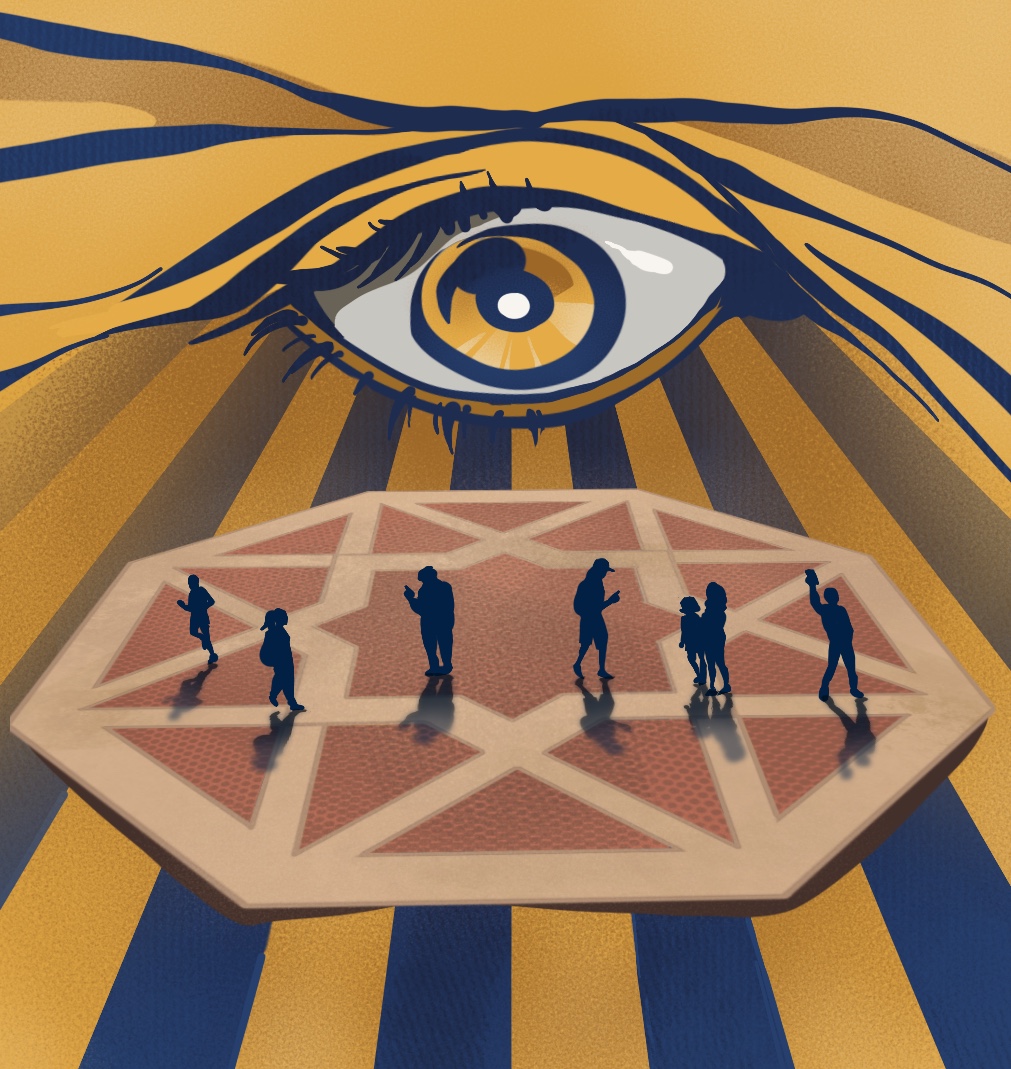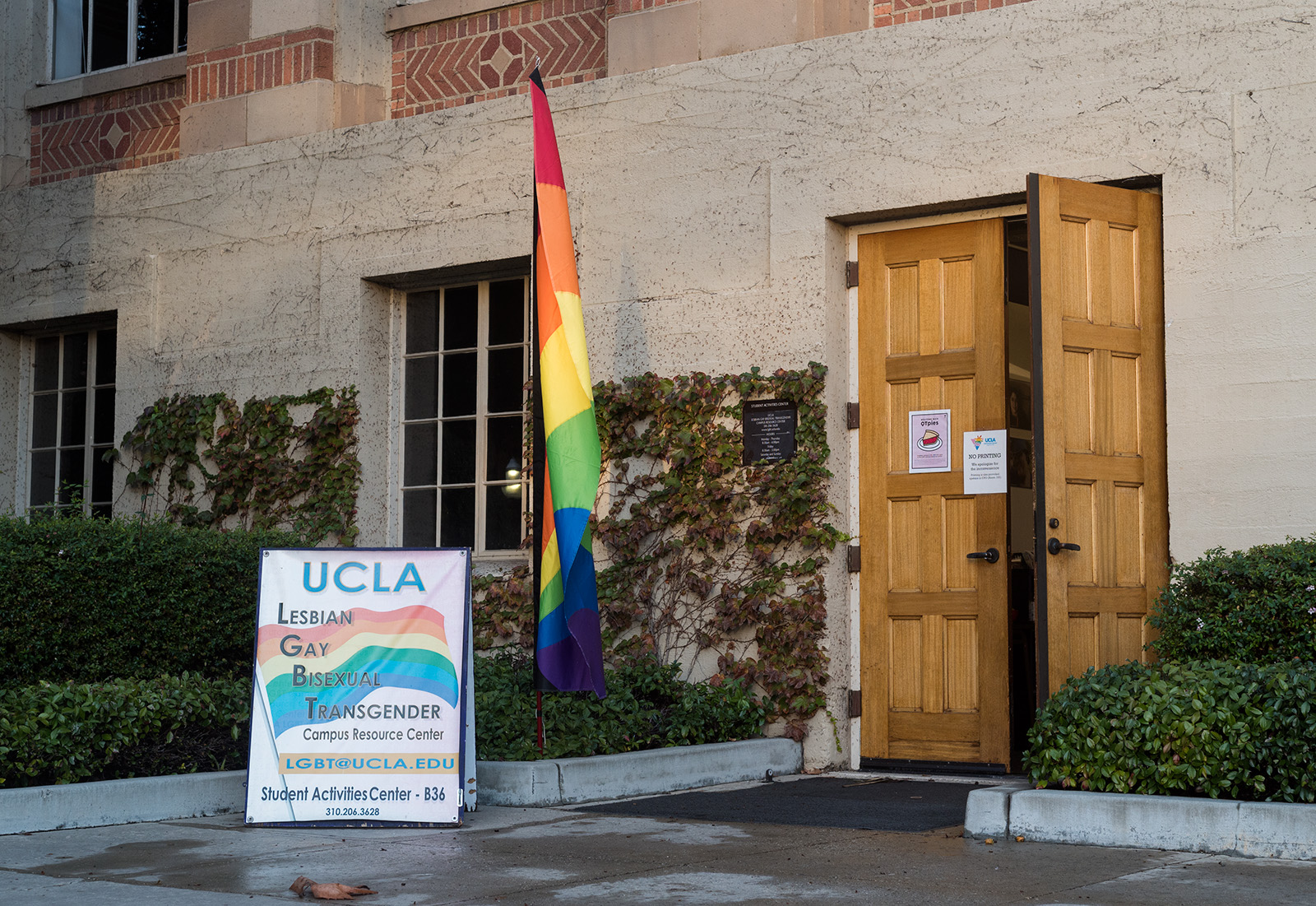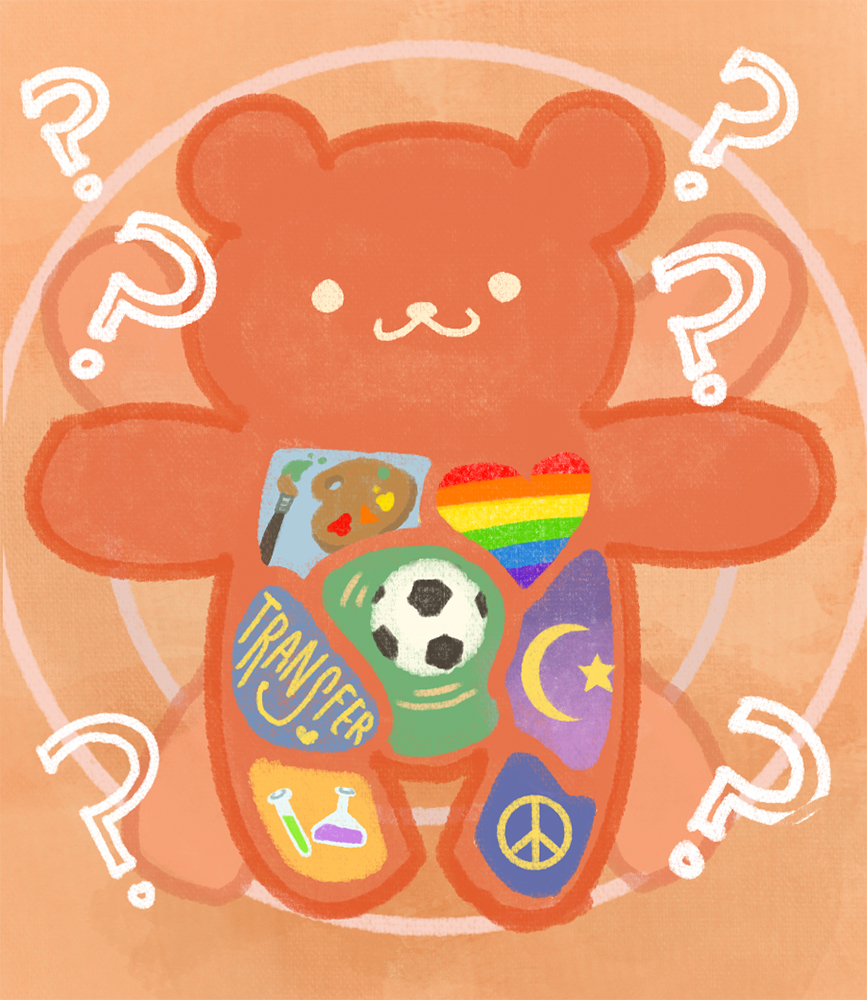Opinion: Expectations for professional attire hinder the expression of queer identities

(Helen Juwon Park/Daily Bruin)
By Nick Levie
April 18, 2024 9:17 p.m.
Marching up Bruin Walk wearing three layers of business professional attire amid the sunny California weather is not the afternoon of choice for many UCLA students.
But as spring rush continues, blazers, slacks and button-ups have spiked in popularity as students prepare for recruitment interviews and coffee chats, demonstrating that professionalism on campus manifests most tangibly in the way we dress. Standards of professional attire present an identifiable set of criteria used to determine whether or not an applicant, coworker or even fellow student is worthy to exist in a given space.
Younger generations are beginning to look at this social construct through a more progressive lens, especially as queer communities and other marginalized groups receive the visibility they have long been denied.
Queer individuals, such as people with fluid or non-binary gender identities, may be excluded by the rigidness of these physical expectations. They are forced to strike a balance between what is viewed as professionally acceptable but also true to their gender and self-expression.
Traditionally, men have been expected to wear suits and ties or polo shirts, while women must wear dresses or blouses with blazers.
Therefore, not only does this dress code sacrifice your comfort under the sun, but it also restricts outward expression of LGBTQ+ identities, encouraging people to suppress their personal touch from their professional selves.
It is time UCLA ushered in a more radical shift in professionalism that widens the capacity for self-expression, gender fluidity and choice. Students should not have to present a more palatable version of themselves to be taken seriously in academic environments.
For decades, this ideal has remained constant. For good or for bad, everyone can construct an image of a professional individual. Since this is so deeply ingrained in the public consciousness, there are expectations assigned to aligning with or diverging from this idea.
“It’s important to look like you’re ready for business,” said Andrew Han, a third-year mathematics/economics student and the chapter president of the Alpha Kappa Psi business fraternity.
This ideal has become widespread and culturally significant, manifesting in industries beyond the traditional corporate business world such as popular media.
Clarke Huang, a UCLA alumnus and the former vice president of external relations of the Beta Alpha Psi accounting honors society, added that this was perpetuated in the recent blockbuster movie “Saltburn,” which featured a character being criticized for something as simple as the length of his sleeves.
With rigid expectations often come exclusionary ideals, especially when these environments have long been fueled by harmful narratives originally constructed by straight white male-dominated industries. Among those excluded, queer people are often forced to shapeshift into the ideal standards of professionalism outlined by heteronormativity.
Therefore, queer people have had minimal decision-making power and visibility in defining this physical manifestation. To occupy space in these environments, people with identities or self-expressions diverging from the heteronormative standard must perform an act unwillingly prescribed to them centuries prior.
Yet, even when professionalism is lenient to queerness, what is accepted is only what is respectable through a heteronormative lens.
“There’s a muted version of queerness in the corporate world, and it’s slowly changing,” Huang said. “But even for myself, I think that’s why I don’t present it so outwardly is because I still feel I need to stifle it,” she added.
Moreover, because of the strict definition and identifiable nature of this attire, dressing in contrast to these norms can force queer people to choose if they are comfortable “outing” themselves to their counterparts, whether that may be during UCLA professional events or beyond in the workplace.
Kevin Goodman, the acting director of the LGBTQ Campus Resource Center, said in a written statement that an individual’s publicly queer identity can vary, and someone who is not “out” or does not desire to be so in a business or corporate setting may dress in ways that subscribe to gendered professional norms.
Although clothes are not inherently gendered, they still convey the persona of an individual. This may place LGBTQ+ people in a dilemma, especially those still discovering their identities and grappling with the deeply personal decision to come out. Straying away from professional expectations can inadvertently indicate queerness and result in backlash or ostracization. On the other hand, diminishing one’s queerness in outward presentation can sacrifice a crucial part of their identity and lead to discomfort regardless.
It goes without question that queer people deserve to feel safe existing as their most authentic selves in all environments, but this is sometimes far from their reality.
Dress codes can be especially restrictive for people with intersectional identities, who may face multiple forms of discrimination and who may be pressured to conform in professional settings to uphold respect from others as a form of survival.
“This is particularly felt by women, non-binary and transgender employees, especially those multiply marginalized by race and class,” Goodman said. “As an openly LGBTQ+ professional and a man of color, I too have felt pressured to conform to masculine gender performance at work given the potential for discrimination across various facets of my identity.”
Members of marginalized communities, such as queer people of color, low-income individuals and people with disabilities, are disproportionately affected by these toxic standards of professionalism and can be forced to double down on their performance according to masculine or feminine expectations.
On the contrary, it is essential to acknowledge the benefits of a dress code that standardizes working environments and encourages a certain level of appropriateness and intention to prevent carelessness from becoming a precedent.
Han added that clearly defining an expectation of appearance distinguishes what is and is not appropriate for a specific setting and that while freedom of expression is valuable, certain attire such as jeans and T-shirts can show disregard for the professional space.
While a standard is important to rule out inappropriateness and lack of intent, the current definition has origins in hegemonic whiteness and heteronormativity, deeming the desired appearances for many queer or gender non-conforming individuals inappropriate.
Instead, opening up the definition of professionalism to welcome androgyny, self-expression and accessibility can diversify these environments, making them more inclusive to the vast population.
Fortunately, several changes are being made in professional industries, and these spaces are beginning to include greater leniency regarding casual attire – paving the way for uplifting changes at UCLA and beyond. Fashion publications like Vogue are pioneering this evolution, in which clothing items like leather skirts, open-toe shoes and even jeans are becoming the new office trend.
“People are changing the way that tattoos and body modifications are being perceived,” Huang said. “But there is still that kind of stigma around them.”
With progress on the horizon, LGBTQ+ and marginalized individuals deserve to feel comfortable and receive fair representation in dress codes so they do not have to compromise their queer identities for their professional ones.
Whether individuals are participating in rush events or applying for a job, widening our definition of professionalism can expand accessibility and relieve discomfort for all students in our journey to the workplace.






